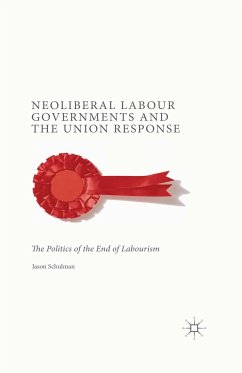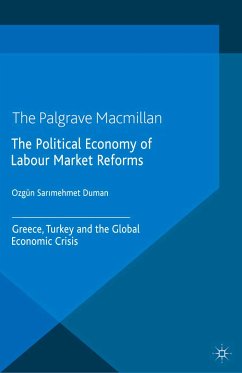
Neoliberal Labour Governments and the Union Response (eBook, PDF)
The Politics of the End of Labourism
Versandkostenfrei!
Sofort per Download lieferbar
40,95 €
inkl. MwSt.
Weitere Ausgaben:

PAYBACK Punkte
20 °P sammeln!
A cross-country comparison of recent Labour Party governments in New Zealand, Britain, and Australia, and an exploration of how those countries' labour movements responded to their parties' neoliberal policies in power.
Dieser Download kann aus rechtlichen Gründen nur mit Rechnungsadresse in A, B, BG, CY, CZ, D, DK, EW, E, FIN, F, GR, HR, H, IRL, I, LT, L, LR, M, NL, PL, P, R, S, SLO, SK ausgeliefert werden.












